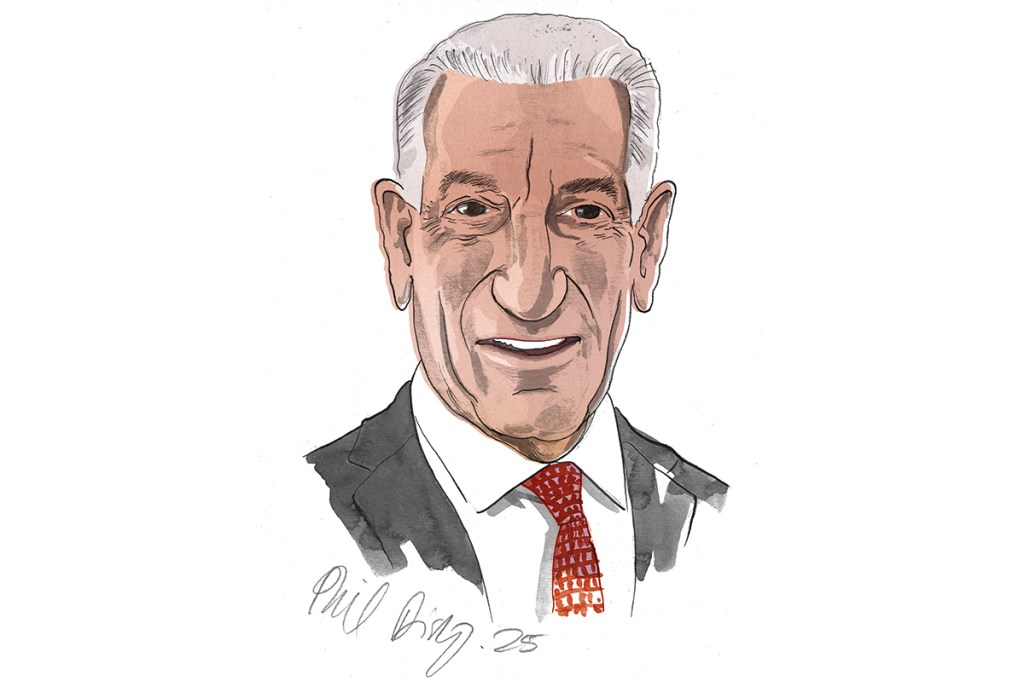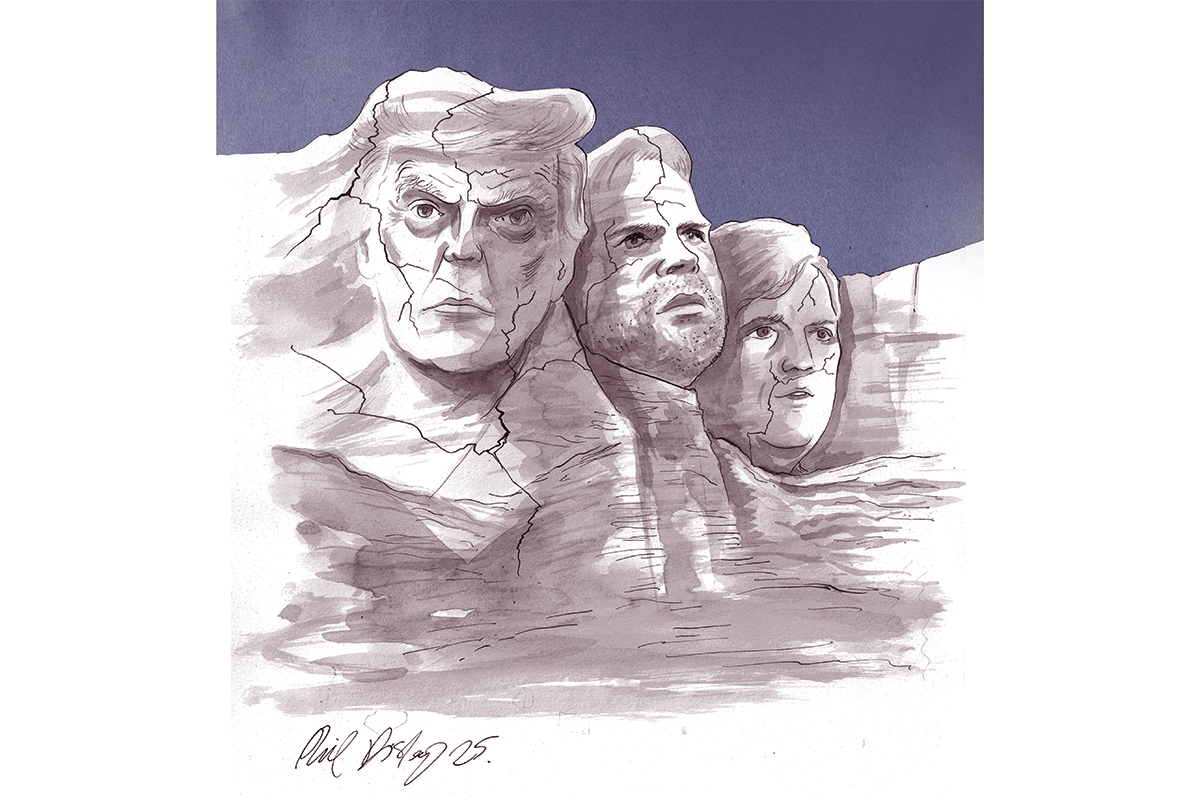When Charles Kushner took up his appointment as American ambassador to France this summer, his first official visit was to the Shoah Memorial in Paris. As a child of Holocaust survivors, he tweeted, “fighting anti-Semitism will be at the heart of my mission.” So it has proved. Last month, Kushner published a letter in the Wall Street Journal in which he accused Emmanuel Macron of insufficient action in the face of soaring anti-Semitism in the Republic.
The ambassador was summoned for a dressing down. He didn’t attend as he was on vacation
Kushner also castigated the French President for his imminent recognition of Palestinian statehood. “Public statements haranguing Israel and gestures toward recognition of a Palestinian state embolden extremists, fuel violence and endanger Jewish life in France,” wrote Kushner. “In today’s world, anti-Zionism is anti-Semitism – plain and simple.”
The American criticism of Macron mirrors that of Benjamin Netanyahu. Last month, the Israeli Prime Minister claimed the decision to recognize Palestine “pours fuel on this anti-Semitism fire.” Macron described Netanyahu’s remarks as “abject.”
Macron didn’t respond personally to Kushner’s criticism, but the ambassador was summoned to the French Ministry of Foreign Affairs for a dressing down. Kushner didn’t attend, as he was on vacation. In his place he sent his chargé d’affaires. The magazine Paris Match described the move as “a deliberate diplomatic affront.”
Paris said it regarded Kushner’s remarks as not only inaccurate but also undiplomatic, not being “commensurate with the quality of the transatlantic link between France and the United States and the trust that must result from it, between allies.” The ambassador’s criticism, it said, also contravened the 1961 Vienna Convention, which stipulates that diplomats are duty bound “not to interfere in the internal affairs of the state.”
This convention was ignored in 2016 by France’s ambassador in Washington. In responding to Donald Trump’s victory over Hillary Clinton in the presidential election, Gérard Araud tweeted: “After Brexit and this election, anything is now possible. A world is collapsing before our eyes. Dizziness.” He later deleted the post.
Araud returned to the attack in 2019 when he left Washington, declaring that Trump was a “whimsical, unpredictable, uninformed” President. The passage of time has not mellowed Araud. On learning last November that a re-elected Trump had nominated Kushner as ambassador to France, Araud tweeted: “I recommend reading his CV. ‘Juicy,’ as the Americans would say… Needless to say, he doesn’t know the first thing about our country… we console ourselves as best we can.”
Araud was not alone in objecting to the appointment of Kushner, whose son Jared is married to Trump’s daughter Ivanka. The French media expressed surprise that a man who had spent a year in a federal prison for tax fraud (and was pardoned by Trump during his first term as President) was considered suitable for the post.
The left-wing newspaper Le Monde wondered what exactly qualified Kushner to the post of ambassador, noting his response to the Senate when asked a similar question: “I don’t know much about French art or wine, but I understand business.”
Democrats in America were also unimpressed by Kushner’s appointment. Severin Beliveau, a stalwart of the party in Maine and an honorary consul of France, penned a furious op-ed earlier this year explaining why Kushner should not be Uncle Sam’s man in Paris. “It is hard to find anything that qualifies Mr. Kushner for the appointment,” wrote Beliveau. “He is a convicted felon, has no diplomatic experience and can be expected to personalize the existing tensions between President Trump and the President of France.”
Kushner, 71, does indeed have little to recommend him for the role. But the same applied to some of his predecessors in Paris. George W. Bush appointed Howard H. Leach as ambassador to France in 2001, a man whose area of expertise was food-processing. And in 2009, Barack Obama gave the job to Charles Rivkin, who had made his name as a producer of The Muppet Show. The appointment raised eyebrows in France, although it was noted that he had been one of Obama’s principal financial supporters during his presidential campaign.
Despite his lack of diplomatic experience, Rivkin’s appointment was welcomed by the Paris elite, as mesmerized by Obama as the rest of Europe’s movers and shakers. “We couldn’t have dreamed of a better choice,” simpered Jean-David Levitte, the diplomatic advisor of president Nicolas Sarkozy. “Charlie Rivkin is the epitome of American professional success.”
In attacking Charles Kushner, France is shooting the messenger. His criticism is not unfounded
Once in Paris it became evident that Rivkin had one particular mission, which was to spread American-style identity politics into the suburbs. This soon came to the attention of the French press. Le Monde published an article in the summer of 2010 entitled “Washington conquers the 93” (93 is the administrative designation of the turbulent Seine-Saint-Denis département north of Paris).The paper described how Rivkin liked to visit these suburbs, sometimes with a famous face in tow, such as actor Samuel L. Jackson. According to Le Monde, “these symbolic and media junkets conceal the extent of the networking that has taken place in France in recent years to identify the elites of the neighborhoods and ethnic minorities.” Once they’d been identified, the American embassy invited these “elites” to Washington in order to “deepen their reflections on their subjects of interest.”
The extent to which Rivkin was importing identity politics into France was exposed by WikiLeaks in 2010. On January 19 of that year, Rivkin sent a confidential report to Washington entitled “Minority Engagement Strategy.” “French institutions have not proven themselves flexible enough to adjust to an increasingly heterodox demography,” wrote Rivkin. One initiative was to work “with French museums and educators to reform the history curriculum taught in French schools, so that it takes into account the role and perspectives of minorities in French history.”
This was clear interference, yet it raised barely a murmur in Paris. Not so the intervention of Kushner, which has caused outrage among the French elite. Jean-Noël Barrot, the minister of foreign affairs, described his criticism as “unjustifiable and unjustified… because it is not the place of a foreign representative to come and lecture France on how to govern its own country.”
Someone has to, because Kushner is right: France is taking insufficient action to protect its 500,000 Jews. Macron’s political adversaries accuse him of abandoning the country’s Jewish population in order to pacify the violent minority within France’s large “Algerian diaspora.”
In November 2023, Macron declined an invitation to attend a rally in solidarity with France’s Jews, who were already experiencing a surge in anti-Semitism. Allegedly he made his decision after he was warned from a Muslim advisor that his attendance might “give the neighborhoods cause to catch fire.”
The following year, Macron vowed that France would be relentless in combating anti-Semitism, which he admitted had increased “in an absolutely inexplicable, inexcusable, and unacceptable manner.”
In reality, the rise is eminently explicable. Once the preserve of the far right, French anti-Semitism is today most commonly found among the far left and their Islamist allies. Among the many recent anti-Semitic acts in France are the assault of a teenage boy as he left a synagogue in Lyon and the refusal of an adventure park to admit a party of Israeli children. There was also the chainsaw attack on an olive tree planted in memory of Ilan Halimi, a young Jewish man who was tortured to death in 2006 by an inner-city gang. Two Tunisian brothers have been charged with the desecration.
Halimi’s sister says “no lessons have been learned” from her brother’s death. Increasingly she fears for her children’s safety in France and says she is thinking of emigrating to Israel. Macron, she says, is “doing nothing” to protect France’s Jews.
In attacking Kushner, France is shooting the messenger. His criticism – supported by Washington – is not unfounded.
This article was originally published in The Spectator’s September 15, 2025 World edition.


























Leave a Reply